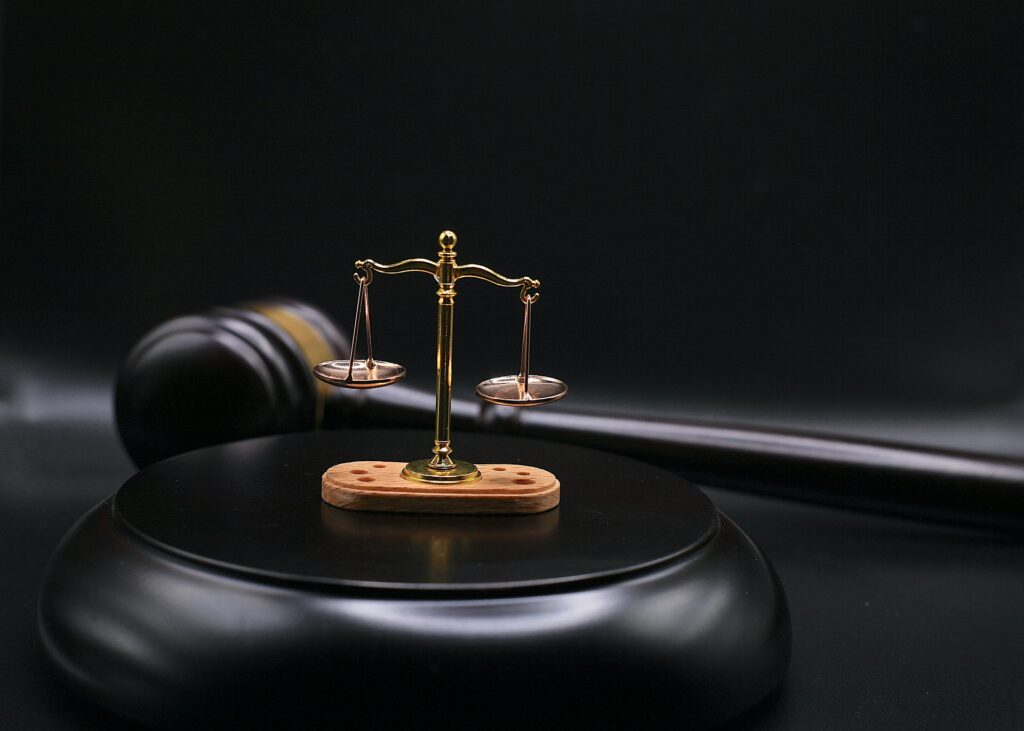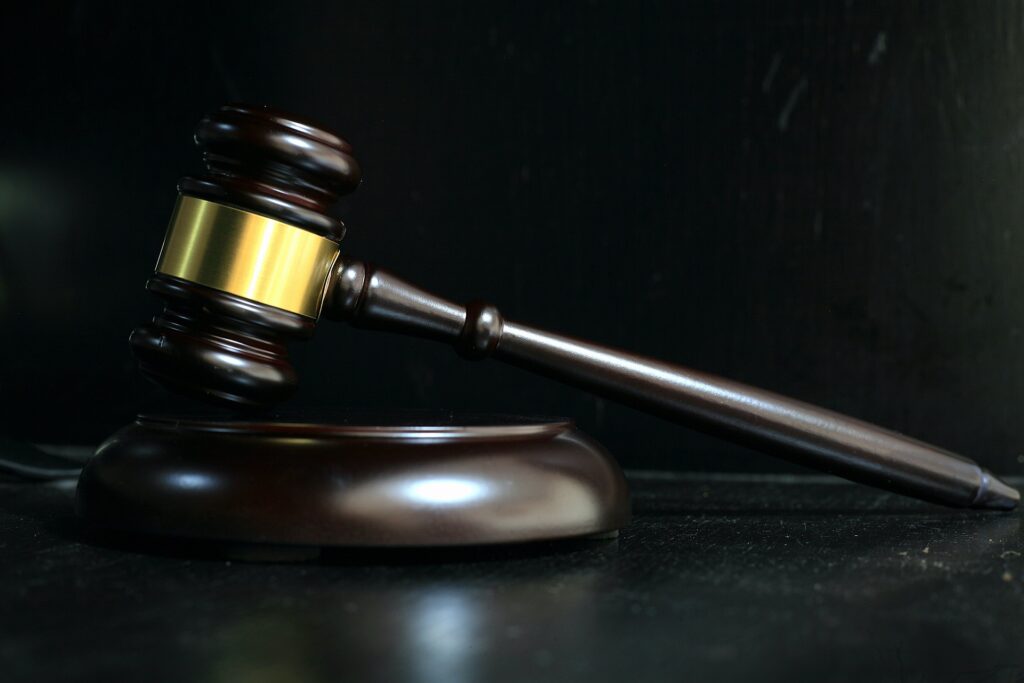Based on the Administrative Office of the US Courts’ report, 152,376 civil cases involving personal injury were filed in 2020. A personal injury case results when an individual suffers injury from an accident caused by another person’s negligence.
Most personal injury cases end in settlement proceedings. Others go to trial and reach a verdict. In 2020, the average personal injury jury award for all recorded liabilities was $2,448,978.
However, this figure doesn’t provide specific information on the actual amount of compensation or value of your case. Each case has different circumstances and outcomes. As a result, it’s possible to receive much less or more than the typical personal injury jury verdicts or settlements.
Suppose you or a loved one seeks to pursue legal action against responsible parties for a personal injury. Before filing a lawsuit, consult an experienced personal injury lawyer to discuss the potential outcomes of your case.
You can also check out the legal resources available at The Personal Injury Center to better understand your chances of winning a personal injury lawsuit.
Key Takeaways
|
What does a personal injury lawsuit entail?
Personal injury lawsuits cover cases where a person sustains injuries due to someone else’s negligence. Negligence happens when an individual or entity breaches its duty of care and inflicts harm on another person.
Other legal grounds for filing a personal injury claim include intentional torts and strict liability. Intentional torts occur when a person does wrongful acts on purpose and causes harm to another individual. Some examples of intentional torts include defamation, assault, and battery.
On the other hand, strict liability applies in situations involving dangerous animals, defective products, and abnormally hazardous activities. It allows you to hold someone legally responsible without proving their negligence or intent.
If one of these legal bases exists, the injured party can pursue financial compensation by filing a personal injury claim and settling with the at-fault party’s
But suppose the
The plaintiff is the person who suffered the harm and initiated the legal action, while the defendant is the person or entity accused of causing the injury.
Legal liability in a personal injury case may arise from various situations. After establishing liability, the next step is determining damages. In personal injury lawsuits, damages refer to the monetary compensation awarded to the plaintiff or injured party for the harm they suffered.
In the following sections, we’ll examine the types of accidents leading to personal injury lawsuits and discuss the potential damages you can recover.
Types of accidents leading to personal injury lawsuits
Merely sustaining an injury doesn’t automatically establish legal liability. But the following are common types of accidents that may cause personal injuries and qualify you to file a claim or lawsuit.
- Motor vehicle accidents: Negligent driving behavior is often the cause of most motor vehicle accidents. A typical example is a motorist speeding or tailgating and causing an accident, harming another road user.
- Medical malpractice: This accident type occurs when a healthcare professional fails to comply with the appropriate standard of care. Situations that frequently lead to a medical malpractice lawsuit include surgical errors, misdiagnosis, and birth injuries.
- Slip and fall accidents: An individual may slip and fall and get injured on a residential or business property. Suppose the accident happens due to the property owner’s negligence. The injured party may take legal action against the premises owner.
- Dog bites or animal attacks: Some jurisdictions impose strict liability for dog bites or other animal attacks. Consequently, owners would be legally responsible for dog bite injuries even if they don’t know the animal posed a danger.
Recoverable damages in a personal injury lawsuit
Successful personal injury lawsuit litigants can recover different types of damages. The payout amount in a personal injury case depends on the individual circumstances.
Suppose the award is excessively high or insufficient. The court can review it and adjust the final payout amount without a new trial or appeal. In any case, the recoverable damages in a personal injury lawsuit fall into the following categories:
Compensatory damages
These damages seek to compensate the plaintiff for economic and non-economic losses they incurred and will experience due to the accident.
Economic damages are the direct financial losses caused by personal injuries. Since they have actual monetary value, they are easy to quantify and prove with medical bills and other receipts.
Typical examples of economic damages include present and future medical expenses and the cost of repairing property damage. They also compensate for loss of income, lost earning capacity, and other out-of-pocket expenses.
Meanwhile, non-economic damages represent the subjective losses of the plaintiff or the impact of the accident and injury on their everyday life.
Non-economic damages typically include pain and suffering, diminished quality of life, emotional distress, and reputational damage. Unlike economic losses, these types of damages are much harder to calculate because they don’t have an exact dollar value.
Punitive damages
In contrast to compensatory damages, punitive damages don’t intend to compensate the injured victims. Instead, they seek to punish the defendant for their wrongful actions and deter the same misconduct in the future.
Punitive damages only apply when there’s gross negligence and intent to inflict harm. Hence, they’re rarely awarded in personal injury cases.
Considerations When Evaluating Your Odds of Success in a Personal Injury Lawsuit


Ultimately, no injured parties want to waste time and resources on a case likely to end in an unfavorable outcome. Hence, assessing the likelihood of success in a personal injury lawsuit is essential.
But predicting the outcome of a personal injury lawsuit is highly complex due to the numerous factors involved in each case. Fortunately, you can take proactive steps to evaluate and maximize your odds of winning a personal injury lawsuit.
Consulting with a lawyer will give you the best chance of obtaining a successful legal action. But you may also consider the following factors when making an informed decision:
Shared liability
In cases where there is shared liability, the court or jury assigns the percentage of fault to each party involved. However, this concept only applies in states that follow the comparative negligence rule.
Comparative negligence is a legal doctrine that enables injured victims to recover damages even if they’re partially responsible for the accident. But the degree of the liability proportionally lessens the amount a plaintiff is entitled to receive.
For example, suppose your total damages amount to $120,000, and the court finds you 40 percent at fault for the accident. In this scenario, you can only recover 60 percent or $72,000.
The application of comparative negligence rules can prolong and complicate the litigation process. One reason is that both parties must prove their respective positions and degree of fault.
Meanwhile, in states that adhere to the contributory negligence system, the plaintiff may be unable to pursue damages if they partially caused the accident. Even a one percent degree of fault can bar plaintiffs from recovering damages.
Only the District of Columbia and the states of Alabama, Maryland, Virginia, and North Carolina recognize this rule.
Given these factors, you need to understand the state’s negligence rule and how it affects your odds of winning a lawsuit.
The extent of injuries and losses
The extent of the victim’s injuries and losses are essential considerations when filing a personal injury lawsuit. More serious injuries will likely have more significant financial implications. Besides looking at the costs of medical treatment, the jury or judge will also consider how the injury adversely affects your daily life.
For instance, the injury prevents you from returning to work permanently. This limitation will impact your ability to contribute to the household income. Additionally, your condition may require lifelong medical care and assistance.
Compared to minor injuries, it will be much more challenging to minimize the damages awarded in cases that involve severe injuries and permanent disabilities. Consequently, the plaintiff’s chances of obtaining a higher settlement or verdict will be likely higher.
Strength of evidence
The success of a personal injury lawsuit also hinges on the presence of strong evidence. It’s vital in proving the total value of your damages and the at-fault party’s liability. Without sufficient proof, the jury or judge will likely render an unfavorable verdict.
Before you decide to proceed with a personal injury lawsuit, here are some critical pieces of evidence that you must gather and preserve:
- Medical records and bills
- Photos and videos of visible injuries, property damage, and accident scene
- Copies of police reports and accident reports
- Employment records
- Depositions or the witnesses’ out-of-court testimonies
- Statements from expert witnesses
Insurance coverage
Filing a personal injury lawsuit is viable when settlement negotiations with the insurer have been unsuccessful.
Even when a lawsuit is already in progress, the insurer or at-fault party may agree to settle before a court renders a verdict. But there are also cases where the liable party may take the risk of going to trial. Once your case proceeds to trial, the court has the final authority to decide liability and the amount of compensation to be awarded.
However, the at-fault party’s
Legal precedents
Courts must adhere to legal precedents when deciding a case to save time and ensure consistent scrutiny of results. Legal precedents refer to prior rulings or judgments in similar personal injury cases.
Consequently, a judge or jury tends to evaluate legal matters with similar circumstances and facts in a particular manner. The juries and judges must consider previous court decisions to maintain consistency in the law’s interpretation and application.
Considering the legal precedents of your case can help you assess your odds of winning the lawsuit. It’s also worth noting that the jury or judge has the discretion to adapt their decision based on the unique aspect of the case and the evidence presented during the trial.
How can a lawyer help boost your chances of winning a personal injury lawsuit?


Seeking legal advice and representation from an accident lawyer is a great way to improve your chances of winning a lawsuit. However, like many personal injury victims, the associated costs may make you hesitant to hire a lawyer.
Most law firms have competent lawyers who accept cases on a contingency fee arrangement. It means that the attorney only receives payment for their legal services only if they win or settle your case.
An experienced accident lawyer can assist in boosting your odds of winning a lawsuit or getting a reasonable personal injury settlement. They can provide the following legal support:
Navigate complex legal procedures
A lawyer can give valuable legal advice on what to anticipate during a personal injury lawsuit. They can walk you through the litigation process, from filing pleadings and the discovery stage to trial and possibly an appeal. At every step, an attorney can help you understand the potential outcome and choose the best course of action.
Establish the defendant’s liability
Establishing liability is a crucial element of winning a personal injury lawsuit. By presenting compelling evidence, a lawyer can help prove the defendant’s liability for your injuries and losses. They will collaborate with medical professionals to confirm your injuries or accident reconstruction specialist to demonstrate the defendant’s negligence.
Prepare and file the lawsuit on time
Failing to file the lawsuit within the state’s statute of limitations may cause you to lose your right to fair compensation. But an attorney is well-versed in the specific time limits for filing your personal injury case. They will prepare the necessary legal paperwork and ensure you meet the requirements promptly.


Pro Tip
Your attorney needs all pertinent information to help improve the likelihood of winning a personal injury lawsuit. Provide your lawyer with complete and accurate details to obtain the most effective legal representation.
Secure Legal Representation for Your Personal Injury Case
Negotiating a fair settlement with
The law and court will allow injured victims to pursue a personal injury case without obtaining legal representation. However, self-representation can increase the risks of expensive errors and unfavorable outcomes.
A personal injury lawyer can help avoid costly mistakes and maximize your odds of success in filing a lawsuit. But not all attorneys have sufficient experience and competence in the type of law your situation requires.
At The Personal Injury Center, you can get free case evaluation and acquire competent legal counsel for your concerns. Contact us today, and we’ll connect you with a qualified personal injury attorney specializing in cases like yours.
Boost your winning potential in a personal injury case. Contact The Personal Injury Center for competent legal assistance.
FAQs on Chances of Winning a Personal Injury Lawsuit
How much will it cost personal injury victims to file a lawsuit?
Pursuing a personal injury lawsuit comes with various costs, from the initial filing, process service, and deposition to document copying, case preparation, and presentation. The amount it will cost personal injury victims depends on the case's intricacies, the number of witnesses, and other factors. The costs of civil cases can range from $43,000 to $122,000.
What percentage of the monetary judgment or settlement typically goes to a lawyer?
In a contingency fee arrangement, the plaintiff pays the attorney a percentage of the settlement awarded. Typically, the amount is 30 to 40 percent of your final settlement or judgment, plus court costs.
What’s the typical duration of a personal injury lawsuit?
The length of a personal injury lawsuit primarily depends on the case's complexity. But most cases take one to three years to obtain a settlement or reach a verdict starting from the date you file the lawsuit.



